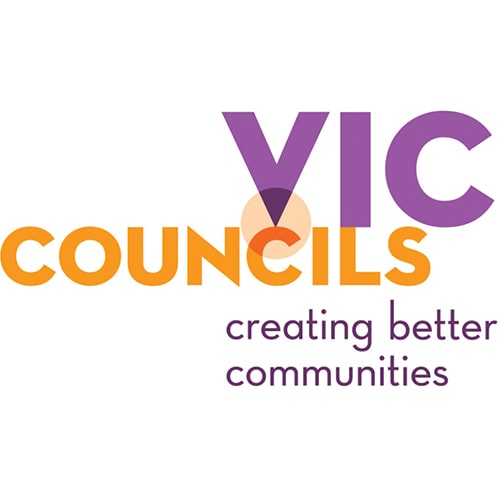Australians aged 65 and over lose more money to scams than any other age group. In 2022, they lost $120.7 million, a 47% increase from 2021. The financial and emotional distress older people can experience from scammers is huge.
Not everyone is confident they can recognise a scam, especially older people. Sometimes the scam can seem so genuine, frightening and/or urgent, that you think that you have to do what they’re asking straight away. But it’s important to stop, think and check before taking any action. Here are our top tips for seniors to avoid being scammed.
Why do scammers target seniors?
- They’re usually trust other people more easily, especially those claiming to took out for them.
- They often have large savings, super funds or high value belongings
- Many seniors are less internet, computer and smartphone savvy.
- Some seniors may have trouble remembering, learning new things, or making everyday decisions.
- They’re more likely to be lonely and housebound, making them more vulnerable.
- May have recently lost a long-term partner and are in a vulnerable emotional state.
Top 4 scams targeting seniors
1. Imposter scams
Scammers claiming to be from a government agency such as the Australian Taxation Office (ATO), Medicare, MyGov, or immigration department, or well-known trusted business such as Telstra, NBN, Netflix or Amazon.
They use threats such as large fines, services being disconnected, arrest or deportation to scare you into giving them money or gift cards, sharing your personal, banking or account information or downloading remote access software.
2. Investment scams
Scammers impersonating financial companies, banks or third-party comparison websites. They offer government bonds or fixed-term deposits with guaranteed high returns. Tech support scams
3. Home repair scams
Scammers will knock on doors or make calls to offer home repair services – such as house painting or roof repairs or home improvements, such as solar panels to save you money over time. They’ll offer a cheap prince, claiming it’s for a limited time and ask you to pay a deposit, or the full amount, upfront. They’ll then never return to complete the work or do a subpar job.
4. "Hi Gran" or family impersonation scams
Scammers pose as a family member, child or grandchild. They will send a text or a WhatsApp messaging claiming to have lost or damaged their phone and so are contacting you from a different number. Once they have developed a rapport with you, they will ask for money to help pay for groceries or to replace the phone because they can’t access their online banking or stored cards.
Examples of scams targeting seniors
- The ATO calling, emailing, or texting you about a tax debt that you need to pay immediately or face arrest and jail
- Telstra or NBN calling to say there are internet problems in your area and they need remote access to your service, so you won’t be disconnected.
- Telstra calling to say your NBN is being used illegally without your knowledge. They have flagged the issue as urgent, and it needs to be fixed immediately, so you need to download remote access software
- Centrelink claiming you have to pay them a penalty in iTunes gift cards or your pension will be stopped.
- Australian Federal Police emailing to advise you’ve been issued with an Infringement Notice. When you download the notice, it downloads dangerous malware to your computer.
- Department of immigration calling saying their have been changes to immigration rules and they need to pay a fee for a lawyer, or to avoid deportation.
- A Robocall (automated call with prerecorded message) from Amazon saying your Amazon Prime Membership payment is due at you need to pay a full year’s subscription upfront by pressing “1” on your keypad.
How to avoid being a scam victim
Stop, think and check
- Stop, think and check before taking any action. Ask yourself if the message, robocall, email, phone call or text message is real or could be a scam.
- Be extra cautious about any communications requesting money, your personal information, credit card details or online account information.
- If you receive a text claiming to be a grandchild or family member contacting you from a different number, try calling your relative on the number you already have stored in your phone to see if they answer, or message them on social media to check whether the text is real.
- If you get a call, text or email claiming to be from a government agency or company that you are a client or customer of and you’re not sure if the communication is geniune, verify it yourself using a phone number or email you have obtained from their official website, secure app, or the phone book. Don’t use contact details provided in the message.
- Watch out for follow-up scams. If a scammer has been successful, they are likely to try again.
Be wary of requests for money from out of the blue
- Never send money to anyone without being absolutely sure who you are sending it to.
- Be wary of requests to pay in odd ways. A government agency or trusted business will never ask you to pay them with gift cards, wire transfers, iTunes cards, or Bitcoin.
Don't respond to demands from "strangers"
- If you receive an email, text or call from a company or government agency you have no relationship with, simply hang up or delete the message.
- If you receive a robocall, hang up – it will either be a scam or a marketing call.
- Don’t allow anyone to remotely access your computer, tablet or mobile phone, even if they say they are from a well-known company. Hang up.
Be proactive about security
- Don’t open suspicious texts or emails, click on any links or open attachments any attachments– just delete them. These could infect your device with a virus or malicious software which gives a scammer your personal, financial and account information.
- Don’t share your usernames, passwords or PINs, with anyone – anyone asking for these is probably scamming you. Make sure you are engaging with the real government agency or your bank before sharing your tax file number, Medicare number or customer ID.
- Turn on two-factor authentication on your online accounts. This forces you to enter a code that’s sent to your phone or email, or that you generate with an app, before accessing your account.






